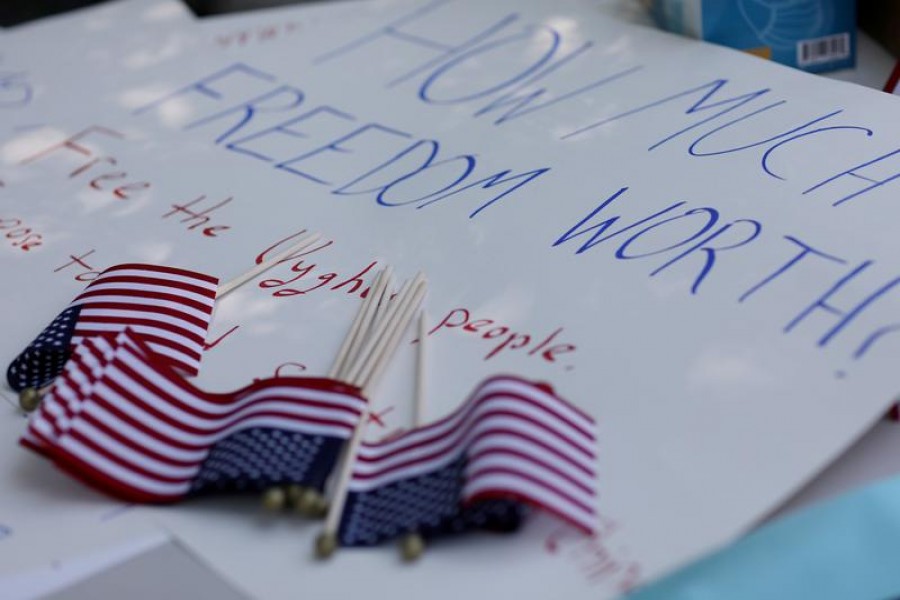A bipartisan pair of US senators on Tuesday introduced a bill to expedite refugee applications from Uighurs, matching an effort in the US House of Representatives to assist members of the largely Muslim ethnic group that advocates say face persecution in China.
Republican Senator Marco Rubio and Democratic Senator Chris Coons put forward the “Uyghur Human Rights Protection Act,” which would grant Priority 2 refugee status to Uighurs and other groups, including Kazakhs and Kyrgyz, who have faced repression in or fled from China’s Xinjiang region.
Priority 2 status would allow hundreds, or possibly thousands, of Uighurs to forgo a United Nations referral and apply directly as refugees to the US government, reducing concerns that Beijing could be notified by a third country and seek their deportation back to China.
China denies abuses, but the United States has declared that Beijing is perpetrating a genocide, reports Reuters.
“The United States must continue to speak out against the PRC’s human rights abuses in Xinjiang, and we must also provide assurance and protection for the Uyghurs and all those facing persecution as a result of their religious or ethnic identity,” Coons said in a statement referring to the People’s Republic of China, the country’s formal name.
The Senate bill, complementing a House version put forward in March, has Republicans and Democrats increasingly optimistic that the refugee upgrade could become law, even as the US Congress forges ahead with a sweeping package of other legislation to counter China’s influence.
“From a substantive perspective, the end game here is extremely similar,” one Senate aide comparing the Senate and House bills, told Reuters. “We see this as an area of easy bipartisan support,” he said.
UN experts and human rights groups estimate that more than one million Uighurs and other Muslim minorities have been detained in harsh conditions in Xinjiang as part of what Beijing calls a vocational training campaign to battle terrorism.
The bill also encourages US partners and allies to make refugee accommodations for Uighurs.


